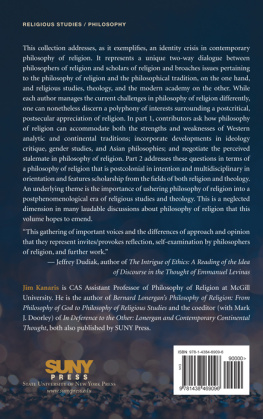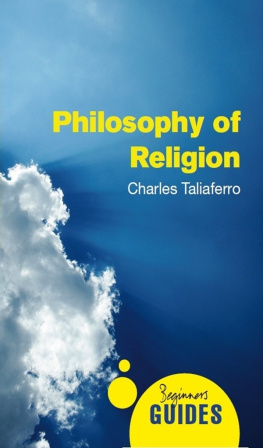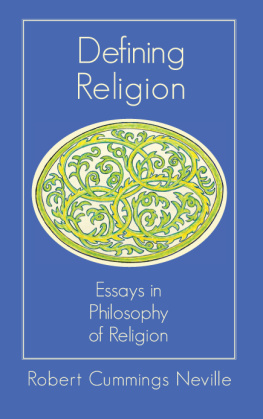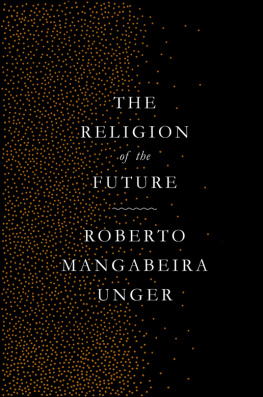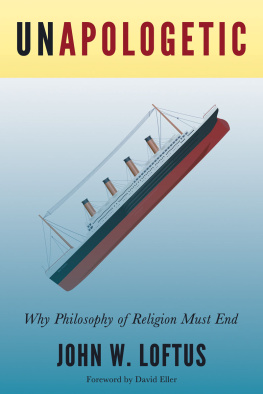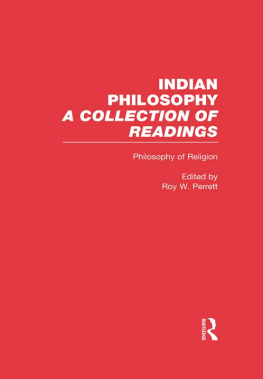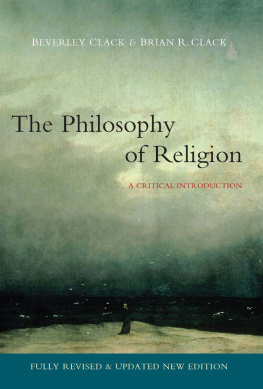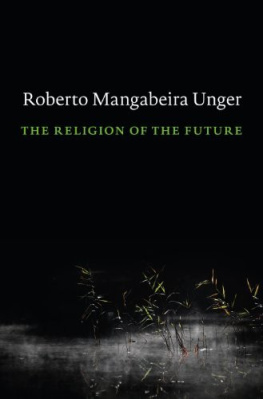Kanaris - Reconfigurations of philosophy of religion a possible future
Here you can read online Kanaris - Reconfigurations of philosophy of religion a possible future full text of the book (entire story) in english for free. Download pdf and epub, get meaning, cover and reviews about this ebook. year: 2018, publisher: State University of New York Press, genre: Religion. Description of the work, (preface) as well as reviews are available. Best literature library LitArk.com created for fans of good reading and offers a wide selection of genres:
Romance novel
Science fiction
Adventure
Detective
Science
History
Home and family
Prose
Art
Politics
Computer
Non-fiction
Religion
Business
Children
Humor
Choose a favorite category and find really read worthwhile books. Enjoy immersion in the world of imagination, feel the emotions of the characters or learn something new for yourself, make an fascinating discovery.
Reconfigurations of philosophy of religion a possible future: summary, description and annotation
We offer to read an annotation, description, summary or preface (depends on what the author of the book "Reconfigurations of philosophy of religion a possible future" wrote himself). If you haven't found the necessary information about the book — write in the comments, we will try to find it.
Kanaris: author's other books
Who wrote Reconfigurations of philosophy of religion a possible future? Find out the surname, the name of the author of the book and a list of all author's works by series.
Reconfigurations of philosophy of religion a possible future — read online for free the complete book (whole text) full work
Below is the text of the book, divided by pages. System saving the place of the last page read, allows you to conveniently read the book "Reconfigurations of philosophy of religion a possible future" online for free, without having to search again every time where you left off. Put a bookmark, and you can go to the page where you finished reading at any time.
Font size:
Interval:
Bookmark:

Reconfigurations of
Philosophy of Religion
Reconfigurations of
Philosophy of Religion
A Possible Future
Edited by
Jim Kanaris

Published by State University of New York Press, Albany
2018 State University of New York
All rights reserved
Printed in the United States of America
No part of this book may be used or reproduced in any manner whatsoever without written permission. No part of this book may be stored in a retrieval system or transmitted in any form or by any means including electronic, electrostatic, magnetic tape, mechanical, photocopying, recording, or otherwise without the prior permission in writing of the publisher.
For information, contact State University of New York Press, Albany, NY
www.sunypress.edu
Production, Dana Foote
Marketing, Anne M. Valentine
Library of Congress Cataloging-in-Publication Data
Names: Kanaris, Jim, 1964 editor.
Title: Reconfigurations of philosophy of religion : a possible future / edited by Jim Kanaris.
Description: Albany, NY : State University of New York, 2018. | Includes bibliographical references and index.
Identifiers: LCCN 2017021792 (print) | LCCN 2017061724 (ebook) | ISBN 9781438469102 (ebook) | ISBN 9781438469096 (hardcover : alk. paper)
Subjects: LCSH: ReligionPhilosophy.
Classification: LCC BL51 (ebook) | LCC BL51 .R32875 2018 (print) | DDC 210dc23
LC record available at https://lccn.loc.gov/2017021792
10 9 8 7 6 5 4 3 2 1
Contents
Jim Kanaris
P ART I
P HILOSOPHY OF R ELIGION AND THE P HILOSOPHICAL T RADITION
Morny Joy
Maurice Boutin
Pamela Sue Anderson
N.N. Trakakis
Timothy D. Knepper
Jin Y. Park
P ART II
P HILOSOPHY OF R ELIGION AND R ELIGIOUS S TUDIES , T HEOLOGY, AND THE M ODERN A CADEMY
Carl A. Raschke
Jim Kanaris
Tyler Roberts
John D. Caputo
Clayton Crockett
Wesley J. Wildman
Acknowledgments
The initial stage of this project, a symposium the editor organized at McGill University in April 2013 entitled Has Philosophy of Religion a Future?, was graciously funded by the Social Sciences and Humanities Research Council of Canada (SSHRCC), with the help of McGill Universitys School of Religious Studies (SRS) and the McGill Centre for Research on Religion (CREOR). Its unlikely that this volume would have taken shape without their valued support.
Introduction
J IM K ANARIS
Philosophy of religion is, as Wesley J. Wildman argues in this volume, a field of inquiry that is multidisciplinary and comparative, not a discipline. It is folly, therefore, to desire mastery over it. It is also folly to assert a mastery over writings that recognize or assume the singly unmanageable nature and sweep of the field. For this reason, I am humbled by the task of organizing this volumes material, modest perhaps in number but significant in understanding and visionary in orientation. What is equally elusive are categorical distinctions suggestive of an uncomplicated series of answers to a vexing question. And so one will be hard pressed to find a uniform vision in this collection. Indeed, the careful reader will spot several points of contention, which is both healthy and part and parcel of any field of inquiry. What Clifford Geertz (1973, 29) famously stated about anthropology applies no less to philosophy of religion: a field whose progress is marked less by a perfection of consensus than by a refinement of debate. What gets better is the precision with which we vex each other. It is this individuality, present here, that I would argue is a key strength of this volume. It exemplifies, while speaking to, an identity crisisCarl A. Raschke describes it as a crisis more contextual than existential or socially introspective in nature (153154). Global awareness and hypercritical self-consciousness stamp it. The eclectic nature of the contributions is proportional to an appreciation of plurality and difference unprecedented by former generations of philosophers of religion, their ideas of critical reason vis--vis religion. While being hypercritical does not or should not provide carte blanche or pose as a comfy alternative to tidy universalist perspectives, it is nonetheless better to see it present than absent.
The vexing question noted above can be surmised from a cursory reading of the chapters. In some form or another, each author wrestles with the question of philosophy of religions future, a truly vexing question not only because, as Raschke notes, everyone from philosophers to geophysicists to economists have a horrible track record when it comes to divining the mysteries of tomorrow (153). It is also and especially vexing because, despite the fact that the exercise is not frivolous, which Raschke himself reiterates, the unlikelihood of a better track record still renders the exercisethis sophisticated academic version of play therapy (153)necessarynecessary, that is, if philosophy of religion is to be open to a future, to have a future. To put it in Derridese, this experience of the unlikely, because it pertains to the impossible (i.e., knowledge of the future), releasing its possibility in thought; this experience of the unlikely is an integral dimension of the messianic structure, the a-venir , of this particular play therapy. Each author invests in the task, knowing full well that we speak only to a possible future, a future we are opening ourselves to and inviting ourselves to considerhence the books subtitle. The visions of reconfiguration here concern a possible future, variations of it, helping us to negotiate, as Raschke notes, a real trauma or a niggling feeling of emergent crisis (153).
In certain cases, this possible future is coped with by looking for aid to thinkers of the distant past (e.g., Spinoza and Kierkegaard) and the not-so-distant past (e.g., Paul Ricoeur, Hannah Arendt, and Grace Jantzen). Sometimes it is managed by reflecting on the different thinking styles of the philosophical tradition, Western and Asian, analytic and continental. The reader will encounter proposals of rapprochement and even of supersession in a mind-numbing trail of thinking that moves from the poststructuralist and postcolonial to the whimsically branded post-postmodernist. While not exhaustive, the representation is both consequential and suggestive. Particularly refreshing is the problematic of ushering philosophy of religion into a post-phenomenological era of religious studies and theology. This is an underlying theme unique to this work. It is a neglected dimension in many laudable current discussions about contemporary philosophy of religion. In fact, and to offset what was said earlier, because of this theme, a commonality surfaces that is easily missed on account of the different register of voices. This affords (this editor, anyway) a look at the forest despite the trees, discerning a polyphony rather than a cacophony. A postcritical, postsecular appreciation of religio or darshana (a Sanskrit term that combines philosophy and religion, meaning perspective or worldview) dawns each chapter. The positivistic role of reason, inherited from the Enlightenment, has been sufficiently negotiated, if not altogether abandoned. An appreciation of religion can be detected here that transmogrifies the topically invested philosophy of religion of yesteryear. Present is a strong sense of retrieval, reimagi(ni)ng, and self-affirmation, that is, affirming, embracing, the singularity of the faith-full self through reason, be it the postanalytic, deconstructive, semiotic, or non-philosophy variety. This might make a Lord Herbert of Cherbury or Lord Shaftesbury wince, while a Shankara, Aquinas, or Maimonides might grin. I am not suggesting that the volumes contributors are in solidarity with so-called New or Radical Orthodoxynot that there would be anything wrong with that, of course. The point, rather, is to identify an implicit sensibility that connects somehow with the past, all of it, while deconstructing the dividing practices inherited from seventeenth- and eighteenth-century theisms and deisms that still brand the field. Put otherwise, each installment typifies something of a second (third or fourth) naivet, making its peace while breaking with the past. This disease, the precariousness of this faltering and yet necessary play therapy (to continue with Raschke), is crucial if we are to say oui , oui to the future, to the vitality of the institution under consideration (see Derrida in Caputo 1997, 6, 2728).
Font size:
Interval:
Bookmark:
Similar books «Reconfigurations of philosophy of religion a possible future»
Look at similar books to Reconfigurations of philosophy of religion a possible future. We have selected literature similar in name and meaning in the hope of providing readers with more options to find new, interesting, not yet read works.
Discussion, reviews of the book Reconfigurations of philosophy of religion a possible future and just readers' own opinions. Leave your comments, write what you think about the work, its meaning or the main characters. Specify what exactly you liked and what you didn't like, and why you think so.

